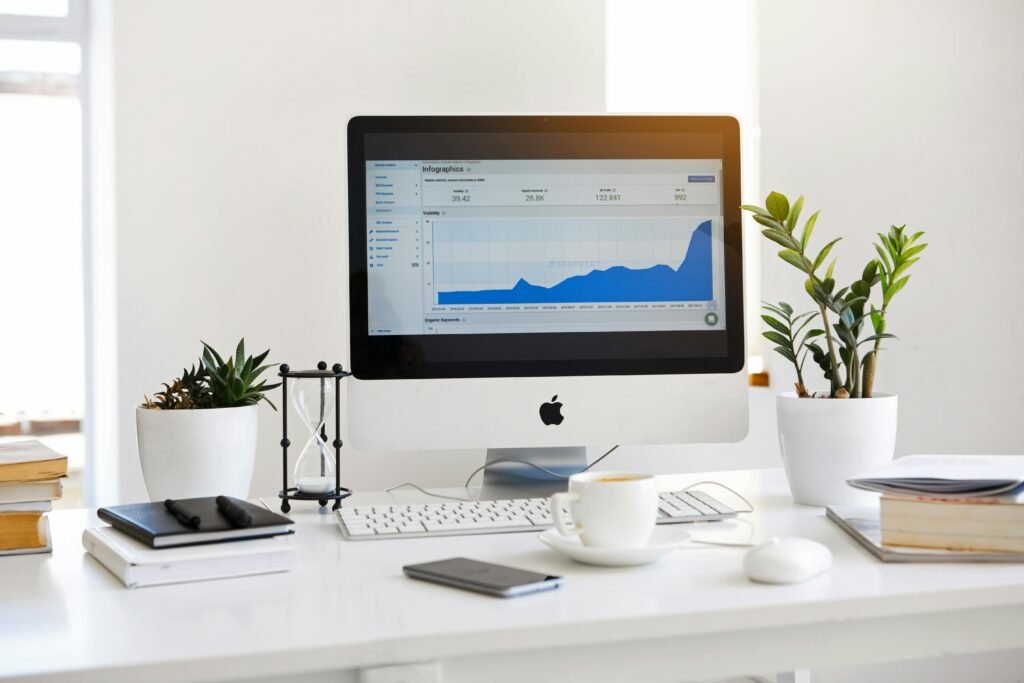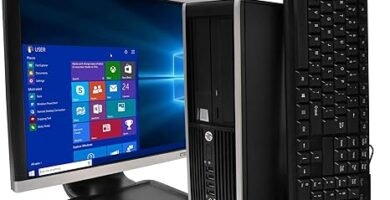
Characteristics of Computers
Computers have revolutionized how we live, work, and play. From the earliest desktop computers to today’s sophisticated gaming systems and advanced workstations, the world of computing has evolved immensely. Each type of computer has unique characteristics tailored to meet different needs.
- Desktop Computers: These are the most traditional types of computers, usually consisting of a tower, monitor, keyboard, and mouse. Desktop computers are known for their power and expandability, allowing users to upgrade components such as RAM, graphics cards, and hard drives as needed.
- Gaming Computers: These computers are optimized for delivering the best gaming performance. With fast processors, cutting-edge graphics cards, and advanced cooling systems, gaming computers provide an unparalleled immersive experience.
- Computer Towers: The tower is the core of a desktop computer, housing all the main components like the motherboard, processor, and power supply. One advantage of towers is their ability to accommodate high-end components that require more space and power.
- Laptops: Laptops offer portability without sacrificing too much performance. They are ideal for people who need a computer on the go. Although not as easy to upgrade as desktops, modern laptops offer a good balance of power and mobility.
- Minicomputers: Smaller than a desktop but more powerful than a laptop, minicomputers provide a middle-ground solution. They are compact and efficient, often used in business environments where space is limited, but solid performance is required.
- Workstations: These computers are designed for technical and scientific tasks that require significant processing power. Workstations are essential in fields like 3D animation, video editing, and scientific simulations.
- Servers: Servers are specialized computers that handle large volumes of data and allow multiple users to access shared resources simultaneously. They are crucial in business and IT environments.
- Specialized Computers: These include computers designed for specific tasks, such as graphic design, scientific workstations, and dedicated servers.
Comparing Computers with Similar Products
Comparing different types of computers is essential to finding the option that best suits your needs. Below, we examine how desktop computers, laptops, and minicomputers stack up in several key areas.
| Performance vs. Portability: | Desktop computers generally offer superior performance compared to laptops and minicomputers, but they lack portability. If you need power for intensive tasks like video editing or gaming, a desktop is ideal. On the other hand, if mobility is your priority, a laptop is the better choice. |
| Expansion Capability: | Desktop computers excel in this area, allowing easy component upgrades. Minicomputers and laptops, for the most part, have limited expansion options. |
| Cost: | While laptops can be more affordable as portable devices, when comparing performance per dollar, desktop computers usually offer better value. Minicomputers fall somewhere in between, offering a balance between cost, performance, and size. |
| Durability: | Desktop computers tend to be more durable due to their robust construction and the ease with which they can be repaired or upgraded. Laptops, being more portable, are more susceptible to physical damage. |
| Specialized Use: | If your work requires intensive graphic or computational tasks, a workstation or a gaming computer would be more suitable. Minicomputers are better suited for office tasks or business use where space is limited. |
¿Por qué las computadoras tienen este precio?
El precio de una computadora puede variar mucho según el tipo y los componentes. Es importante comprender qué factores influyen en el costo para tomar decisiones de compra informadas.
Componentes internos:
El corazón de cualquier ordenador se encuentra en sus componentes internos, como el procesador, la tarjeta gráfica y la memoria RAM. Los ordenadores con componentes de gama alta serán naturalmente más caros debido a la potencia y velocidad que ofrecen.
Marca y garantía:
Las marcas conocidas suelen cobrar un precio más elevado por sus productos debido a su reputación y calidad de fabricación. Además, las computadoras con garantías extendidas o soporte técnico de alta calidad suelen tener un precio más alto.
Opciones de personalización:
Las computadoras que permiten una mayor personalización, como las de escritorio, suelen tener precios más elevados porque ofrecen la posibilidad de actualizaciones futuras, alargando su vida útil.
Diseño y portabilidad:
Las computadoras portátiles ultraportátiles o con diseños especializados tienden a tener costos adicionales debido a la innovación requerida para crear dispositivos compactos y estéticamente agradables sin sacrificar el rendimiento.
Durabilidad y longevidad:
Las computadoras diseñadas para durar, como las estaciones de trabajo y los servidores, pueden tener un costo inicial más alto pero ofrecen una vida útil más larga, lo que las convierte en una inversión que vale la pena.
For your office needs
- 【21.5″ FHD Display】21.5″ diagonal FHD VA ZBD anti-glare WLED-backlit three-sided micro-edge display, 250 nits, 72% NTSC …
- 【Intel Celeron J4025】Intel Celeron J4025 (Base 2.0 GHz, up to 2.9 GHz Burst Frequency, 4 MB Cache, 2 cores, 2 threads). …
- 【Superior Storage and Multitasking】Enjoy seamless multitasking with Upto 64GB of high-speed RAM and embrace blazing-fast…



